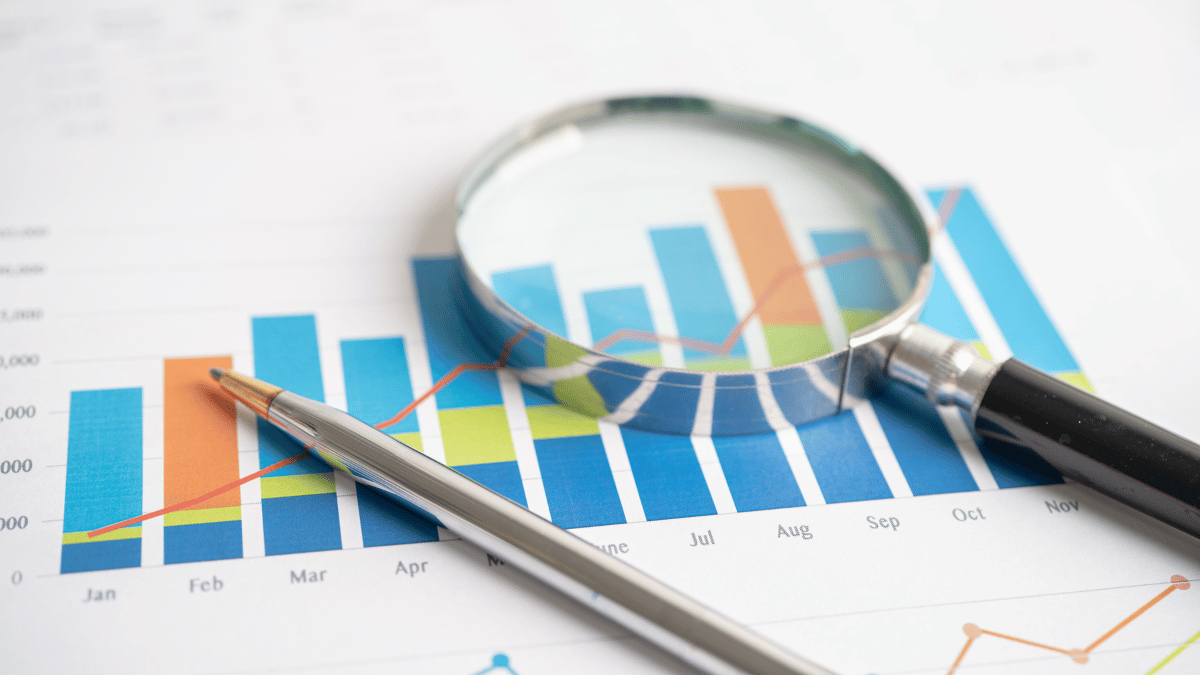In this guide
Super funds managed their way through ongoing market volatility in January, with the median Growth fund (61% to 80% growth assets) returning 0.4% over the month. This takes the return for the first seven months of the current financial year to 5.4% and follows the strong 9.2% annual return for 2025.
All risk options, from Conservative to All Growth, delivered a similar monthly return of between 0.4% and 0.5%.
Chant West head of superannuation investment research, Mano Mohankumar says market volatility was due to heightened geopolitical risks, from US military action in Venezuela to renewed tariff threats against Europe over Greenland, subsequently dropped. “However, markets focused on the global economic backdrop that still remains positive and expectations of continued earnings growth.”
Super fund returns in January were constrained by the surging Aussie dollar, which turned a 1.7% gain from international developed market shares into a loss of 2.7% in unhedged terms. Mohankumar says funds have about 70% of their international shares exposure unhedged.
Emerging markets continue to outperform, up 3.6% unhedged, while Australian shares rose 1.7%. Bonds also kept their head above water; Australian and international bonds both returned 0.2%.
The table below shows the median performance to the end of January 2026 for the five traditional diversified risk categories.
Super fund performance (results to 31 January 2026)
| Fund category (% growth assets) | 1 mth (%) | 3 mths (%) | FYTD (%) | 1 yr (% per yr) | 3 yrs (% per yr) | 5 yrs (% per yr) | 7 yrs (% per yr) | 10 yrs (% per yr) | 15 yrs (% per yr) |
|---|---|---|---|---|---|---|---|---|---|
| All Growth (96–100%) | 0.5 | 0.0 | 7.2 | 8.7 | 12.2 | 10.0 | 10.3 | 10.1 | 9.6 |
| High Growth (81–95%) | 0.5 | 0.3 | 6.3 | 7.9 | 10.8 | 9.1 | 9.6 | 9.3 | 9.1 |
| Growth (61–80%) | 0.4 | 0.3 | 5.4 | 7.3 | 9.3 | 7.7 | 7.8 | 7.9 | 7.8 |
| Balanced (41–60%) | 0.5 | 0.4 | 4.3 | 6.3 | 7.5 | 6.1 | 6.3 | 6.4 | 6.6 |
| Conservative (21–40%) | 0.4 | 0.3 | 3.0 | 5.3 | 5.9 | 4.3 | 4.5 | 4.7 | 5.1 |
Source: Chant West. Performance is shown net of investment fees and tax, before administration fees and adviser commissions.
As you can see in the table above, returns for all periods from one to 15 years remain positive, a remarkably long positive run. And all risk categories have met their typical long-term return objectives, which range from CPI (a measure of inflation) + 1.5% for Conservative funds to CPI + 4.25% for All Growth.
The chart below shows performance of the median Growth fund since the introduction of compulsory super in July 1992. Over that period, the median Growth fund has returned 8% per year. The average annual CPI increase over the same period is 2.7%, giving a real return of 5.3% per year – well above the typical 3.5% long-term target. So, while the median Growth fund has delivered returns of 9.3% or more per year over the past three calendar years, Mohankumar stresses that that level of return should not be thought of as normal and urges super fund members to think long term.
Even looking at the past 20 years, which includes three major market downturns – the GFC in 2007–09, COVID in 2020, and the 2022 calendar year marked by high inflation and rising interest rates to combat it – the median Growth fund has returned 6.8% per year, comfortably ahead of the typical objective.
Growth funds have produced positive returns in 28 of the past 33 financial years. The typical risk objective for Growth funds would be no more than six negative returns during that period (there have been just five), so the risk objective has been met as well as the performance objective.
Source: Chant West
Get more guides like this with a free account
better super and retirement decisions.



Leave a Reply
You must be logged in to post a comment.